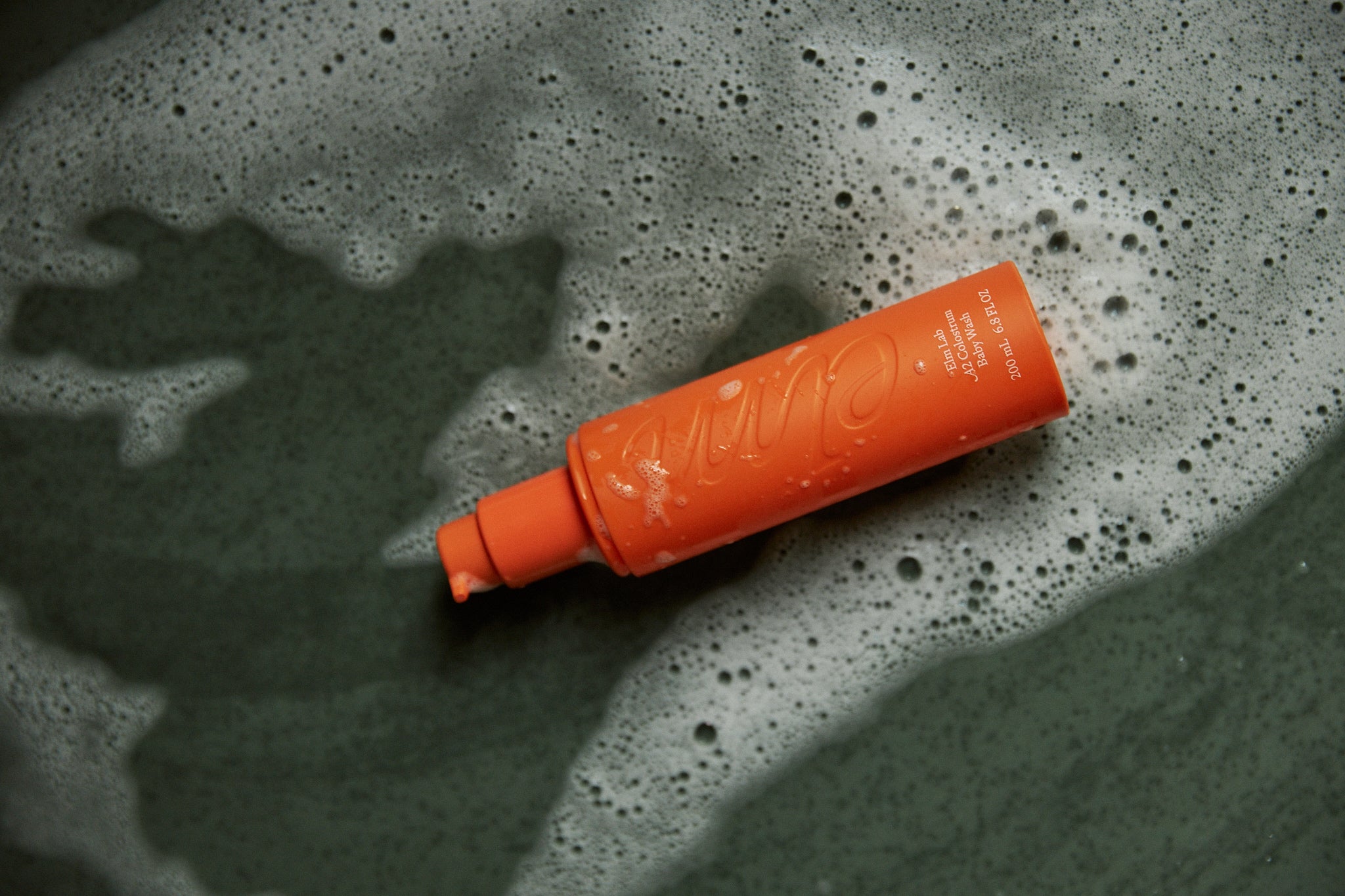A2 Colostrum: The Natural Ingredient Dermatologists Are Talking About
In an industry full of fleeting trends, some ingredients earn lasting attention from dermatologists, biochemists and formulation scientists. Colostrum is one of them. Extracted from the first milk produced after birth, this nutrient-rich fluid is gaining recognition for its skin supporting properties and uniquely gentle profile. Its molecular architecture speaks the skin’s language, delivering peptides, growth factors and immune-supporting compounds that support natural renewal without irritation. Rather than behaving like a harsh active, colostrum acts as a cellular nudge. As barrier health rises to the forefront, colostrum is emerging as a biologically intelligent force in modern skincare.
What is A2 Colostrum?
Colostrum is the nutrient-rich fluid mammals produce in the first 72 hours after birth. It's packed with growth factors, immunoglobulins (antibodies), vitamins and peptides to support early life development and when harnessed for topical use, it brings many of those nourishing properties to support skin comfort and hydration. New Zealand skincare company Elm Lab, sources colostrum exclusively from A2- certified dairy herds, specifically, the founders’ own cows raised on Elm Grove, a sixth-generation family farm located in Otago, New Zealand. The land has been nurtured by the same family since 1853, with a longstanding commitment to ethical farming and high-integrity care. A2 cows produce only the A2 beta-casein protein, which is structurally closer to human milk and better tolerated in nutritional science, particularly among individuals with sensitive or reactive systems. For skin, that translates to a potentially gentler, lower-reactivity profile, making it well aligned with Elm Lab’s barrier-first philosophy.
What makes colostrum so compelling is how densely concentrated it is with skin- supportive compounds the body instinctively recognises. Peptides act like tiny messengers, prompting the skin to produce more collagen and maintain its structure and hydration. Antibodies are seen as natural defenders, helping protect against harmful bacteria and environmental stressors. Lactoferrin and cytokines are being studied for their role in supporting skin comfort and balance. Colostrum also contains hyaluronic acid, a moisture-binding molecule that helps the skin stay plump, hydrated and resilient. These benefits are amplified by enzymes that help shed tired surface cells and support natural renewal and by vitamins that replenish moisture and support antioxidant protection often depleted by stress or environmental damage. Alongside antimicrobial proteins that help keep unwanted microbes in check, colostrum offers not just topical care but a rich blend of compounds that support healthy looking skin. It’s nature’s multi-functional for skin that’s dry, sensitive or under pressure.
Dermatologist-Backed Benefits Colostrum is gaining traction in dermatology for its ability to support barrier function and hydration, especially in individuals with compromised or reactive skin. Its unique composition offers a multi-pronged approach to hydration, comfort and resilience. A 2024 meta-analysis published in Digestive Diseases and Sciences found that bovine colostrum significantly reduced intestinal permeability across ten randomised clinical trials. While focused on gut health, the findings underscore colostrum’s ability to strengthen epithelial barriers, specifically through tightening cell junctions and reducing permeability. These mechanisms, driven by bioactive compounds like growth factors and immunoglobulins, are increasingly being explored in dermatology where barrier integrity is critical to skin resilience. While these findings relate to internal health, researchers are exploring similar mechanisms in topical applications. In topical applications, colostrum supports one of the skin’s most important renewal pathways; fibroblasts, the specialised cells that produce collagen, elastin and hyaluronic acid. These cells act like the skin’s construction crew, supporting structural proteins and maintaining hydration levels.
Colostrum’s peptide matrix helps stimulate fibroblast activity, encouraging the skin to maintain its natural resilience. Scientific research published in the Journal of Drugs in Dermatology (2021) showed that colostrum helped preserve fibroblast DNA under oxidative stress, a key contributor to visible signs of skin stress and dehydration. Colostrum contains calming compounds like lactoferrin and proline-rich polypeptides, which help soothe visible redness and support skin comfort. A 2021 review in Nutrients showed that colostrum can increase levels of interleukin-10, a cytokine known for supporting balanced skin responses. Hydration is another key benefit. Colostrum contains hyaluronic acid and growth factors such as IGF-1 (Insulin-like Growth Factor 1) and TGF-β (Transforming Growth Factor Beta), which help stimulate collagen production, improve skin elasticity and support moisture retention and skin suppleness. These compounds promote moisture retention, replenish the lipid matrix and help the skin maintain antioxidant defences, key actions that reduce moisture loss from the skin’s surface. A 2022 literature review in Cosmetics confirmed that these components actively contribute to hydration and skin comfort. With its unique blend of growth factors, immune supporting proteins and hydration boosting compounds, colostrum offers nourishing care for sensitive skin. From soothing visible redness to supporting the skin’s natural defences, each molecule works in harmony to promote comfort and resilience. As research continues to grow, colostrum is no longer just gentle, it’s a biologically intelligent ingredient inspiring a new chapter in modern skincare.
Is Colostrum the Next Big Ingredient in Dermatology?
Colostrum is quietly emerging as one of the most promising multi-functional ingredients in dermatology. What sets it apart isn’t just what it does, it’s how it does it. Formulators refer to this as biological intelligence, instead of overwhelming the skin with isolated actives, colostrum interacts like a native signal, gently guiding cells toward renewal, hydration and skin harmony. It doesn’t force, it invites. Backed by peer-reviewed studies showing support for skin structure and antioxidant balance, colostrum is emerging as one of the most biologically intelligent ingredients in dermatology. A 2024 review in Cosmetics highlighted its ability to support elasticity and hydration through synergistic action. Its bioactive compounds, including hyaluronic acid, lactoferrin, immunoglobulins and growth factors, actively support skin comfort, hydration and appearance. Some dermatology clinics, including Lancer Dermatology in Beverly Hills, have reportedly introduced colostrum-based mists into professional skincare routines, citing their calming, hydrating effects for sensitised skin. These anecdotal applications reflect a growing curiosity among clinicians about colostrum’s role in supporting skin comfort and hydration. As more consumers seek biologically aligned skincare with clinical relevance, colostrum is moving from niche to necessary. It’s no longer just a quiet contender, it’s a high performance molecule with a biologically intelligent profile that deserves serious attention.
Conclusion
Colostrum isn’t just a trend, it’s a return to biologically aligned skincare. With growing peer-reviewed research into its topical benefits, it’s emerging as a scientifically supported ingredient poised to shape the future of skin care science.
Disclaimer
This article is for informational and educational purposes only. It does not constitute
medical advice, nor does it make therapeutic claims about Elm Lab Skincare
Limited’s (“Elm Lab”) products. Elm Lab’s skincare range is formulated as a cosmetic
product and is not intended to diagnose, treat, cure or prevent any disease or
condition.






